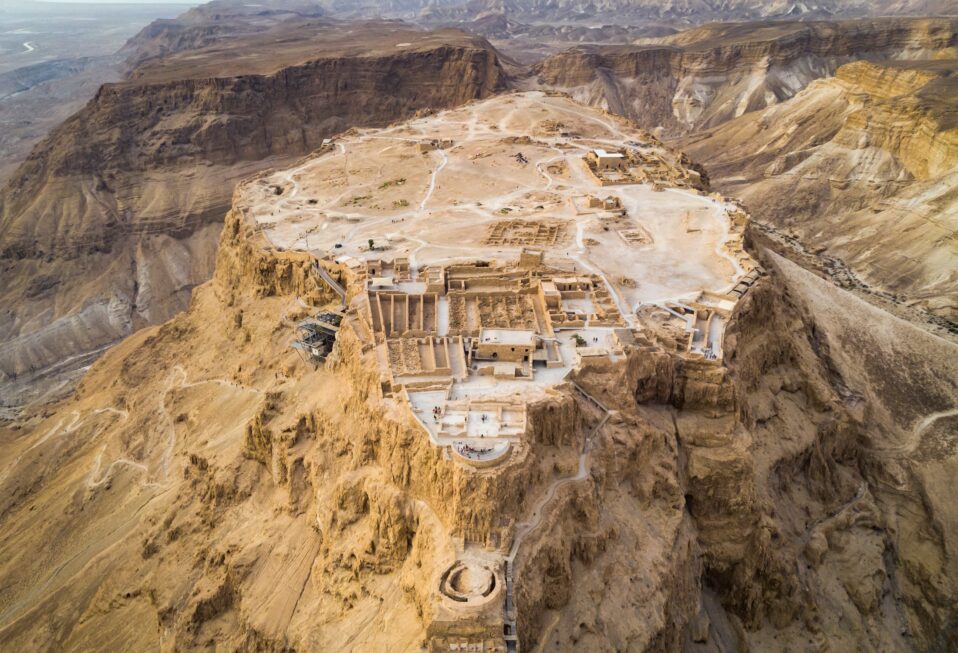By Stephen Faircloth
High above the barren shores of the Dead Sea, the rocky plateau of Masada rises like a sentinel in the desert. Though it receives barely an inch of rain each year, Herod the Great transformed this remote outcrop into one of the most impressive fortress-palaces of the ancient world.
Herod spared no expense. He built two palatial complexes, one cascading dramatically down the northern slope, the other on the western side. Both contained storerooms, living quarters, Roman-style bathhouses, and lavish decorations fitting for a king. Ingenious channels and cisterns captured scarce rainfall, storing millions of gallons of water. Even in the wilderness, Herod ensured he could enjoy pools and gardens.
Yet Masada’s fame does not rest on Herod’s luxuries. Its name is forever tied to the First Jewish Revolt. According to Josephus, Jewish rebels known as the Sicarii sought refuge on Masada after Jerusalem’s destruction. When the Roman Tenth Legion laid siege and finally breached the fortress, they discovered the defenders had chosen death over slavery. Though historians debate the exact details, the story endures as a haunting symbol of desperation, courage, and loss.
Archaeology confirms the presence of those rebels. Herod’s opulent rooms were repurposed for survival. A donkey stable was converted into a simple synagogue, where fragments of scrolls were discovered. Some contained portions of Scripture, others preserved Jewish writings such as Ben Sira. Even in their final days, these men clung to the Word of God as their anchor.
Masada is a place of contrasts. It tells of human ambition in Herod’s stone palaces. It speaks of human defiance in the rebels’ last stand. And it whispers of faith in the scrolls left behind, even as hope seemed lost.
The lesson of Masada is clear. Human fortresses, no matter how strong, cannot ultimately save us. Walls crumble. Armies march. Even the most secure refuge can fall. But Scripture reminds us of a greater truth: “God is our refuge and strength, a very present help in trouble” (Psalm 46:1). Unlike Masada, His protection never fails.
Trusting in God as our true refuge means more than just calling on Him in times of crisis. It is choosing daily to lean on Him instead of our own strength, to surrender our fears instead of building walls around them, and to let His Word be the anchor of our hearts. Where Masada crumbled, God’s presence remains unshakable.
Where do you look for safety when life feels uncertain? Are you building your own fortress, or are you learning to rest in God as your refuge?
Stephen Faircloth is the President of CBN Israel, an initiative dedicated to sharing the true story of the Jewish nation and inspiring a global community of Christians to stand with Israel and support her people in need. Our vision is to reshape the global conversation about Israel by fostering understanding, hope, and healing between Jews and Christians around the world. For more than 50 years, the Christian Broadcasting Network has supported Israel. By joining CBN Israel, you become part of this enduring legacy, transforming lives today and strengthening Christian support for Israel for generations to come.




Post a comment